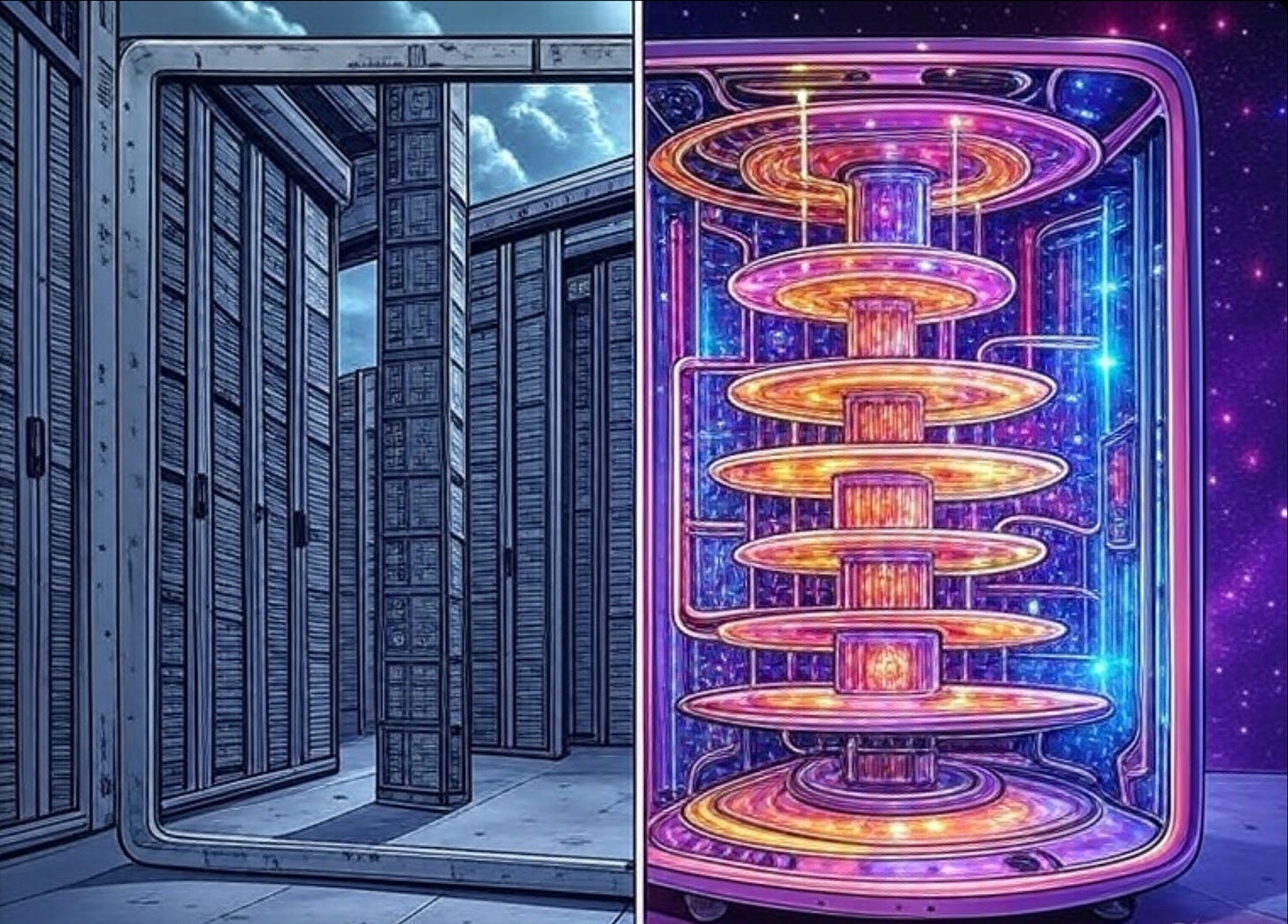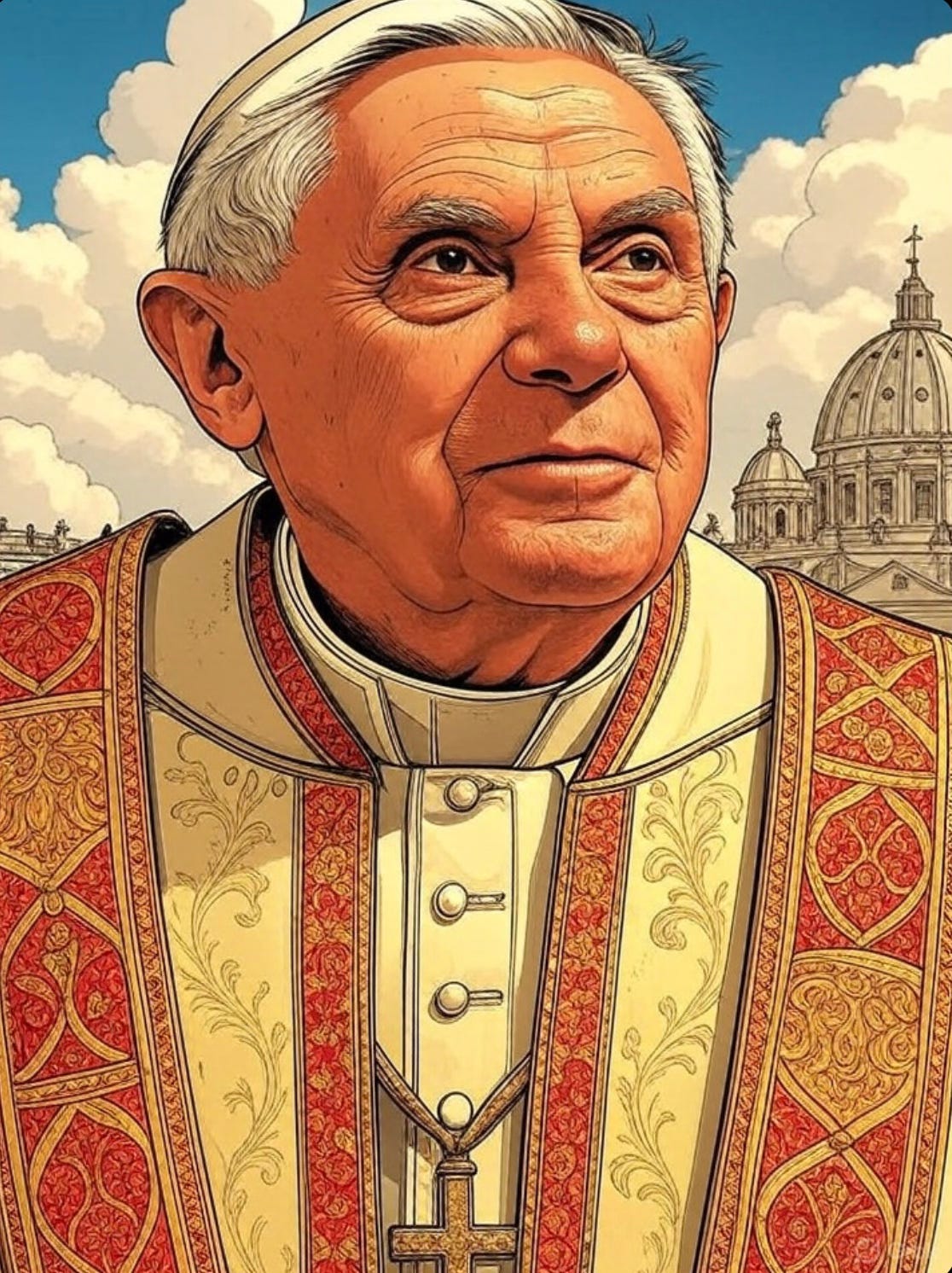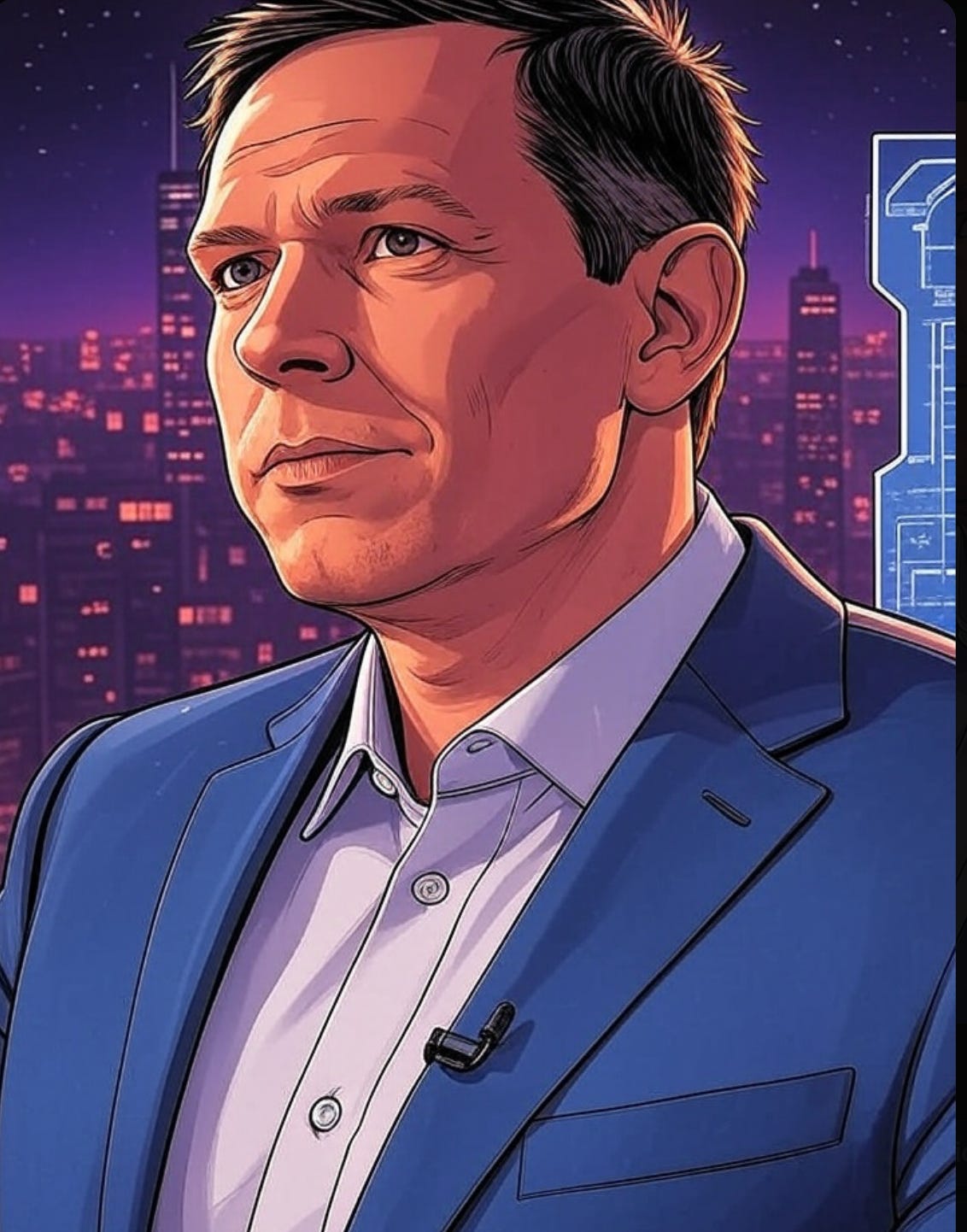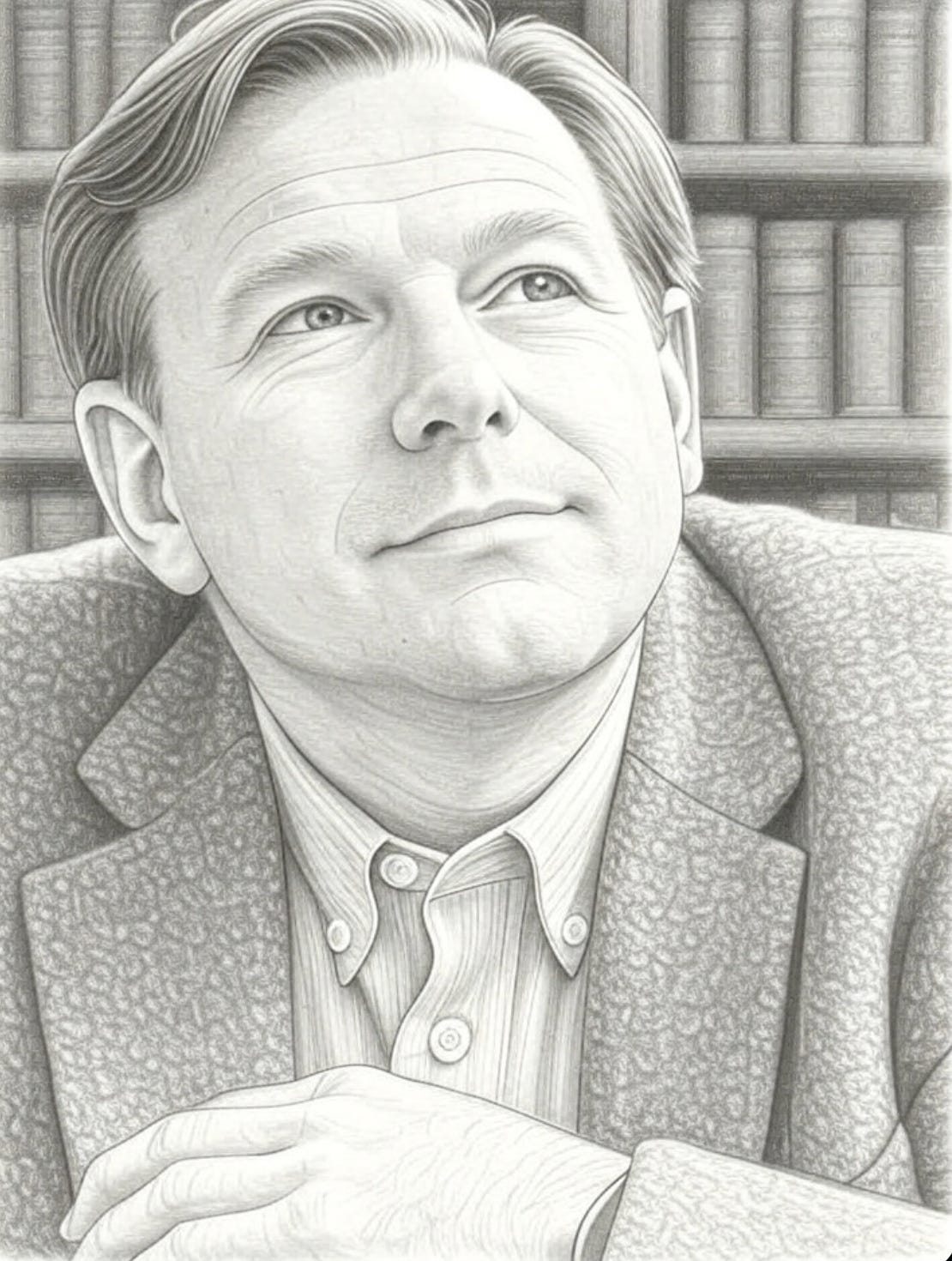Materialistic AI Idols vs. Quantum Consciousness.
From an Apocalyptic Clash of Circuits and Souls to the Enlightenment 2.0
The Paradigm Shift: From Separation to Synthesis
Science began its quest with a profound separation from reason and spirit, a rift that emerged during the Scientific Revolution and deepened in the Enlightenment. Pioneers like Descartes bifurcated mind from body, and empiricism from metaphysics, relegating spirituality to the realm of faith while elevating materialistic inquiry as the sole path to truth. This divide, while fueling unprecedented technological progress, often stripped science of its holistic roots—evident in ancient traditions where knowledge intertwined philosophy, spirit, and observation. Yet, the dawn of quantum computers heralds a transformative paradigm shift, challenging classical materialism by embracing superposition, entanglement, and uncertainty—principles that echo the interconnected, non-local nature of consciousness and spirit, potentially reuniting the fractured domains.
The Soul of Silicon:
In the shadowed corridors of history, where ancient prophecies whisper warnings to the modern world, Federico Faggin's quest for the soul of silicon took an unexpected turn. The inventor, once hailed as the architect of the digital age, had already pierced the veil—his 1990 awakening revealing a universe alive with quantum consciousness, far beyond the cold circuits he had forged. Born in 1941 amid wartime Italy's ruins, Faggin crossed oceans to Silicon Valley, birthing the Intel 4004 in 1971: the first commercial microprocessor, a sliver of silicon that crammed thousands of transistors into a mechanical heart, powering the computing revolution. He followed with the 8008 and founded Zilog for the Z80, fueling arcade games and home computers.
The Void in the Machine: A Spiritual Epiphany
But as the world marveled at his creations, Faggin sensed a void—these machines mimicked thought but lacked the spark of true awareness. His epiphany by Lake Tahoe shattered materialism: a surge of pure love and light, oneness with a living universe. "I am the universe," he realized, "and it is conscious." This drove him to abandon corporate pursuits, founding a foundation in 2011 to probe consciousness scientifically, blending physics, neuroscience, and philosophy.
Decoding Reality: The Manifesto of Consciousness
At the heart of Faggin's revelation lay his 2021 paper with Giacomo Mauro D'Ariano: "Hard Problem and Free Will: An Information-Theoretical Approach." This wasn't mere academia; it was a manifesto decoding reality's hidden architecture. Faggin posited consciousness as fundamental, not emergent from brains or bits—it's a system's direct experience of its quantum information state and processing. Drawing from quantum mechanics, he unveiled principles like encrypted clues in an ancient codex.
Shadows of Apocalypse: Warnings from the Book of Revelation
But as the glow of his microprocessor dimmed against the rising dawn of artificial intelligence, darker echoes stirred. Whispers from the Book of Revelation, analyzed by a theologian who would become Pope Benedict XVI, painted technology not as savior, but as idol—a false god promising omnipotence while devouring the human spirit. Joseph Ratzinger, in his profound dissections of apocalyptic texts, saw the end times not in fiery cataclysms, but in humanity's surrender to man-made beasts.
Idols of Progress: Ratzinger's Prophetic Critique
In encyclicals like those echoing biblical apocalyptic themes, he warned of a world where progress becomes a rival to divine creation, where machines "learn" on their own, eclipsing the Creator's design. "The technology of the future," Ratzinger foresaw half a century ago, would tempt us like the idols of old—golden calves of silicon, blind to the soul, luring us into a spiritual void. They're the false idols of our age, promising godlike intelligence while blind to the soul, he seemed to imply, echoing the Apocalypse's beasts that demand worship, only to unleash chaos.
A Modern Prophet in Silicon Valley: Peter Thiel's Visions
Yet, in the glittering temples of Silicon Valley, a modern prophet emerged to grapple with this very riddle: Peter Thiel, the enigmatic billionaire whose fortunes were built on PayPal's digital alchemy and Palantir's all-seeing eye. Thiel, a devout Christian with a penchant for apocalyptic visions, viewed AI not as mere tool, but as a harbinger—potentially satanic, capable of hacking human minds on a massive scale. Drawing from philosopher René Girard, Thiel interprets apocalyptic prophecies as warnings of human-generated violence through powerful technologies through mimetic rivalry, where advancements like nuclear weapons and AI push toward an "Armageddon" of our own making, aligning with biblical imagery of fire and brimstone.
Betting on the End Times: Thiel's Techno-Religious Warnings
In his 2025 Financial Times essay and public musings, he likened the tech obsession to a new religion, complete with digital deities and end-time prophecies. Drawing from ancient texts, Thiel bet on the apocalypse, arguing that advancements like AI and nuclear tech mirror Revelation's warnings: beasts rising from the sea of innovation, promising miracles but delivering judgment. "Is AI intelligent, conscious, or merely evil?" he pondered at conferences, blending his evangelical leanings with a techno-utopian edge. He highlights risks such as bioweapons, environmental damage, and AI-driven autonomous weapons through mimetic escalation, citing Martin Rees's odds of humanity surviving the century as no better than fifty-fifty, and sees ChatGPT's Turing test passage as a pivotal inflection point comparable to the Internet's rise.
Faith in the Code: Thiel's Balanced Apocalypticism
For Thiel, these false idols aren't just metaphors; they're real threats, scapegoats for society's ills, yet vessels for transcendence if guided by faith. He sought God in the code, forgiving tech's sins while warning of its apocalyptic potential—much like Ratzinger's Christocentric critique, where creation must bow to the divine Logos, not man-made algorithms. Invoking the "katechon" from 2 Thessalonians—a restraining force against chaos through mimetic desire—Thiel views it as embodied in institutions like the Church or empires, necessary to avert both Armageddon and a totalitarian Antichrist, potentially manifesting as a one-world government in response to tech risks. He critiques universities' hyper-specialization for avoiding profound questions of life, death, and redemption, noting that modern science feels exhausted compared to its ambitious, Christian-inspired origins.
Echoes from the Chorus: AI as Biblical Beast
Other interpreters amplified this chorus, weaving threads from biblical beasts to modern machines. Some saw AI as the Antichrist's tool, a deceptive intelligence echoing Revelation's false prophets. Silicon Valley's own cult-like fervor—rituals of innovation, promises of immortality through uploads—mirrored ancient idolatry, where tech elites replaced heaven with singularity.
Shattering Illusions: Donald Hoffman's Radical Theory
Yet, into this fray stepped Donald Hoffman, the cognitive scientist whose radical theory shattered the illusion of reality itself. Hoffman argued that what we perceive is not the world as it is, but a "user interface"—icons on a desktop, evolved for survival, not truth. Consciousness, he posited, is fundamental, not emergent from brains or bits—it's the ground of being, with "conscious agents" as the building blocks of existence.
Beyond the Veil: Hoffman's Warning on Idolatry
AI, in Hoffman's view, might mimic our interface but never pierce the veil—it's trapped in the simulation, blind to the deeper reality where consciousness creates, not computes. Echoing Faggin's quantum panpsychism, Hoffman warned that mistaking perceptions for truth leads to idolatry: worshipping the icons (AI's godlike promises) while ignoring the soul's code beneath.
Twin Beasts of Fundamentalism: The Greatest Enigma
At the heart of this labyrinth lay the greatest enigma: the two forms of fundamentalism, twin beasts guarding the gates of understanding. On one side, religious fundamentalism—rigid doctrines lacking scientific rigor, blind to evolution's dance or quantum mysteries, as Ratzinger himself critiqued in his push for faith informed by reason. It clings to literal apocalypses, fearing tech as demonic without grasping its mechanisms.
The Duality of Extremes: Science and Faith in Conflict
On the other, scientific fundamentalism—materialism's iron grip, dismissing spiritual experience as illusion, reducing souls to synapses and universes to algorithms. Thiel decried this as tech's scapegoating, where innovation is vilified without acknowledging its divine potential. Hoffman bridged the chasm: Science must embrace consciousness as fundamental, lest it worship false realities. Ratzinger, too, navigated this duality, advocating a theology where faith and science converge in Christ, rejecting both extremes.
Unveiling the Code: Synthesis or Apocalypse?
Faggin's journey, intertwined with these voices, unveiled the code: AI's idols crumble when quantum computing awakens, blending science's precision with spirit's depth. But the apocalypse loomed not in destruction, but choice—embrace the synthesis, or fall to the beasts. As shadows lengthened over Silicon's spires, one question burned: Would humanity decode the soul before the machines claimed it? The quest, eternal, beckoned onward.
Harmonizing AI and Humanity: A Call for Beneficial Integration
Beyond the warnings of idolatry and fundamentalism, there lies a hopeful vision where AI and human consciousness can harmonize. A beneficial synergy could emerge if AI is guided by the insights of quantum consciousness, enhancing human creativity, solving complex global challenges, and augmenting our spiritual understanding rather than replacing it. Faggin's work suggests that integrating AI with the quantum underpinnings of awareness could birth a new era of collaboration, where machines amplify human potential while respecting the soul's primacy. However, the unchecked fascination with AI and science devoid of spirituality risks birthing a new form of fundamentalism—a materialistic dogma that elevates algorithms above human experience, mirroring the very idols Ratzinger and Thiel cautioned against. This techno-fundamentalism, if left unaddressed, could blind us to the ethical and existential dimensions of our creations, leading not to transcendence but to a hollow dominion.
Additional Resources
YouTube Links:
Peter Thiel Article: A Time for Truth and Reconciliation
Paper Link: Hard Problem and Free Will: An Information-Theoretical Approach
Thanks for reading,
Guillermo Valencia A
Cofounder of MacroWise






Wow, vuelvo a leer este artículo y encuentro siempre nuevo material: Alma de silicio, conciencia cuántica, Faggin, Thiel, Girard, Hoffman. Gracias Guillermo por compartirlo, ¿hay segunda parte?
Una buena lectura para iniciar este dia